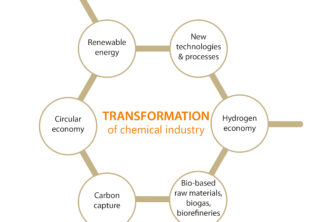Automobile manufacturers vs. suppliers – passing on the price increase causes conflicts
The general conditions for the automotive industry have deteriorated further since the beginning of the year. The industry continues to be affected by problems along the value chain with raw materials and intermediate products. In addition, production costs are rising due to persistently high energy prices, as car manufacturers and suppliers are still dependent on gas for their production. Passing on the rising costs is currently leading to conflicts between the two parties.
For the moment, business seems to be picking up again for carmakers. The indicator for the current business situation compiled by the Munich-based Ifo Institute rose by 5.8 points to 23.6 in June.
„Car manufacturers can continue to push through high sales prices,“
said Ifo expert Oliver Falck. Carmakers were, however, less optimistic about prospects. The expectations indicator fell by 31.5 points to 9.8.
While carmakers can pass on rising raw material and energy prices to their customers, the situation on the supplier side looks much worse. The index for the current business situation fell by 5.6 to 2.5 points, while the index for the outlook declined by 14.1 to minus 33.1 points. The order backlog has decreased, and suppliers expect to cut production.

The curbed gas supply from Russia is increasingly becoming a worse-case scenario for suppliers. Aluminium parts and other light metals for the automotive industry are produced in about 200 German foundries. Unlike iron foundries, however, these are not fired with electricity but with gas. If the gas supply were to be stopped, car parts made of aluminium, such as those produced by Druckguss Westfalen, could no longer be produced. Among other things, Druckguss Westfalen produces the housings for the control electronics for Audi’s E-tron electric SUV and for Porsche’s Taycan electric sedan. Without Westfalen’s aluminium parts, the model series could not be completed.
According to the managing director of Druckguss Westfalen, Rolf Cramer, this is a cross-industry problem, as around 90 % of the production of the entire aluminium casting industry goes to the automotive industry. Therefore, replacement by other foundries is not possible. The situation is similar for other suppliers. Ralf Göttel, head of the automotive supplier Benteler, even assumed in an interview with the Handelsblatt that the manufacturer’s production of parts for the automotive industry in Europe would come to a standstill if a gas embargo came into effect.
Suppliers are also trying to pass on some of the rising costs to the car companies but are encountering resistance. Carmakers are even demanding price cuts from the suppliers, while they themselves have made record profits in the second quarter, an anonymous industry expert reports. The carmakers are only accommodating the suppliers as far as necessary to avoid the danger of a suspension of supply.
The situation between carmakers and suppliers is currently so tense that the German Association of the Automotive Industry (VDA) must intervene as a mediator between the two parties but is coming up against antitrust limits in its attempts to mediate.
The outlook for the second half of the year remains tense. If the gas embargo comes into effect and automotive suppliers are no longer able to produce, car manufacturers will be confronted with further bottlenecks, along with the problems that already exist along the value chain.
Norman Ziegler, Market Intelligence Senior Expert
Sources:
- https://www.handelsblatt.com/unternehmen/industrie/autoindustrie-verteilungskampf-in-der-autobranche-zulieferer-fordern-kostenbeteiligung-von-autobauern/28353786.html?tm=login
- https://www.handelsblatt.com/unternehmen/industrie/ifo-studie-geschaeftslage-der-autoindustrie-verbessert-setzen-hohe-preise-durch/28480274.html
- https://www.ifo.de/pressemitteilung/2022-07-05/lage-deutscher-autohersteller-leicht-verbessert
- https://www.handelsblatt.com/unternehmen/automobilindustrie-konflikt-zwischen-autobauern-und-zulieferern-eskaliert-jetzt-will-der-maechtigste-verband-schlichten/28453020.html
- https://www.automobil-industrie.vogel.de/konflikt-zwischen-autoherstellern-und-zulieferern-momentan-gilt-nur-noch-die-raffgier-a-dc83ff73f05fae408216c13f5aefe45a/
- https://www.handelsblatt.com/unternehmen/autobranche-benteler-chef-ralf-goettel-ueber-gasembargo-die-autoproduktion-in-europa-kaeme-zum-erliegen/28333382.html
- https://www.wiwo.de/unternehmen/mittelstand/giessereien-in-der-gaskrise-stellt-man-uns-das-gas-ab-wird-kein-auto-mehr-gebaut/28465148.html







